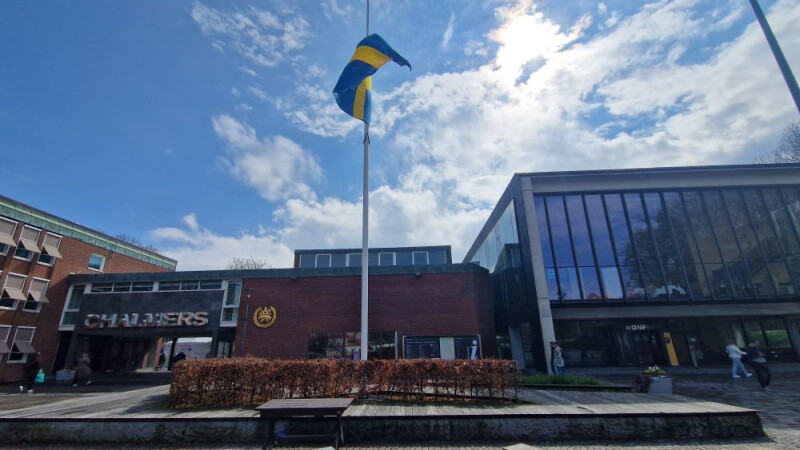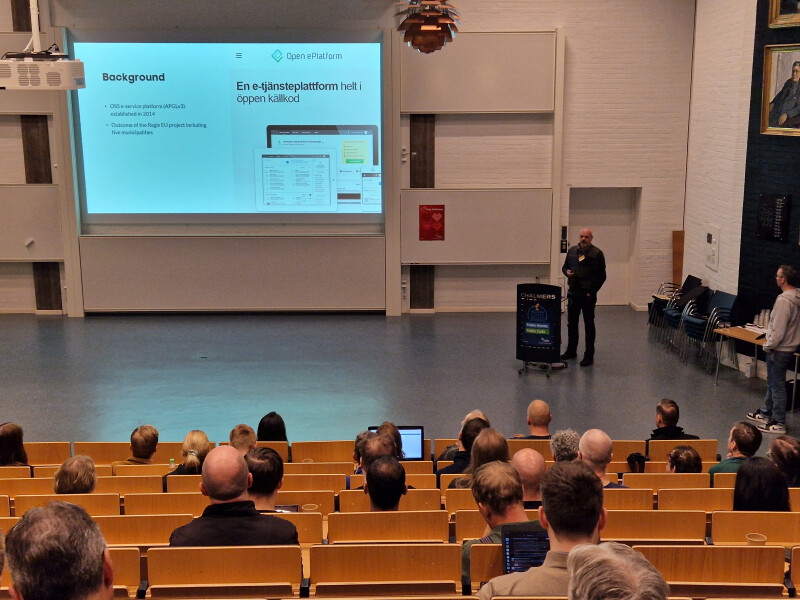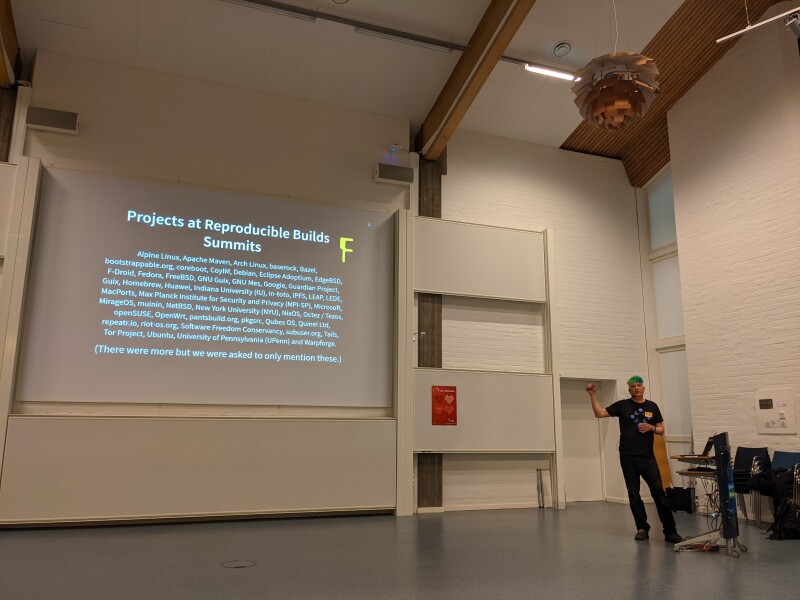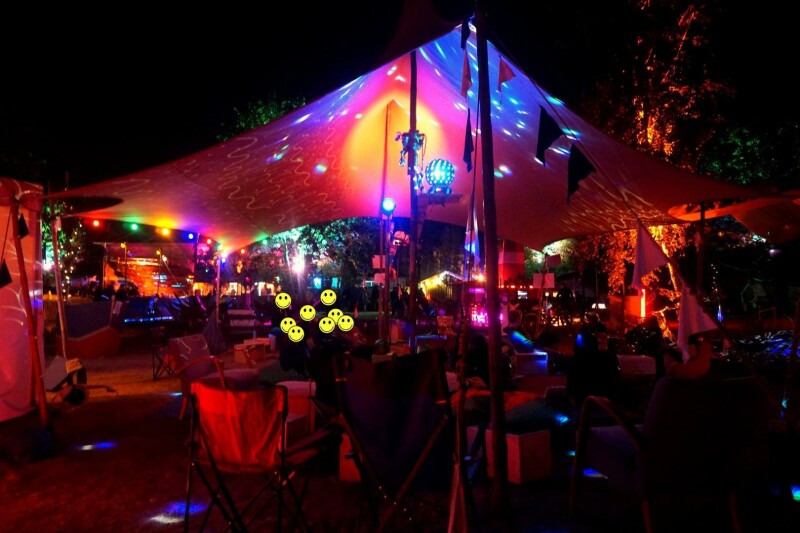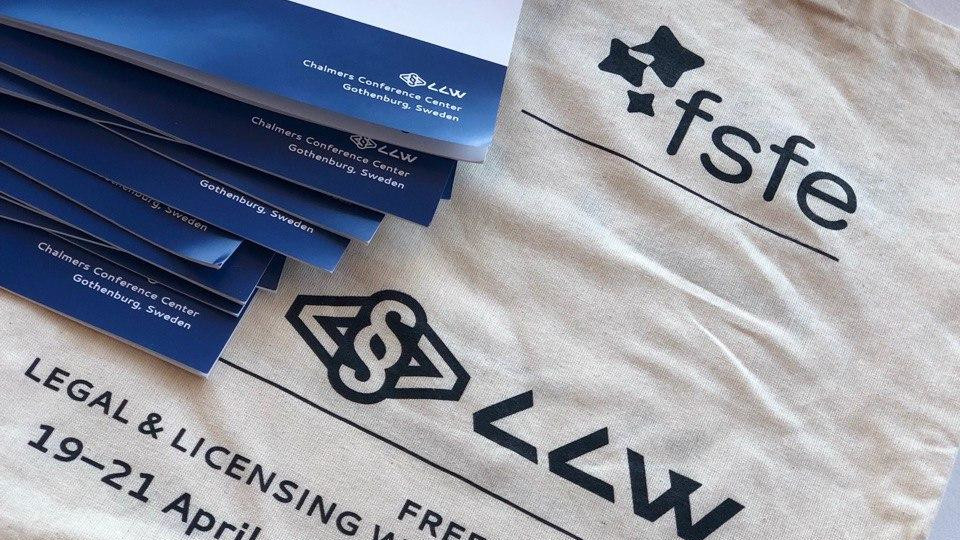FOSS-North & LLW+++Device Neutrality+++NGI Zero
In this issue, you can read about the EU project NGI Zero, LLW, the
FOSS-North conference, and the struggle of Lithuanian students to avoid
using proprietary 2FA. Don't miss our new SFP episode on Device
Neutrality; deepen your knowledge with two interesting articles; enjoy
the latest ‘Ada & Zangemann’ readings; and discover two YH4F projects.
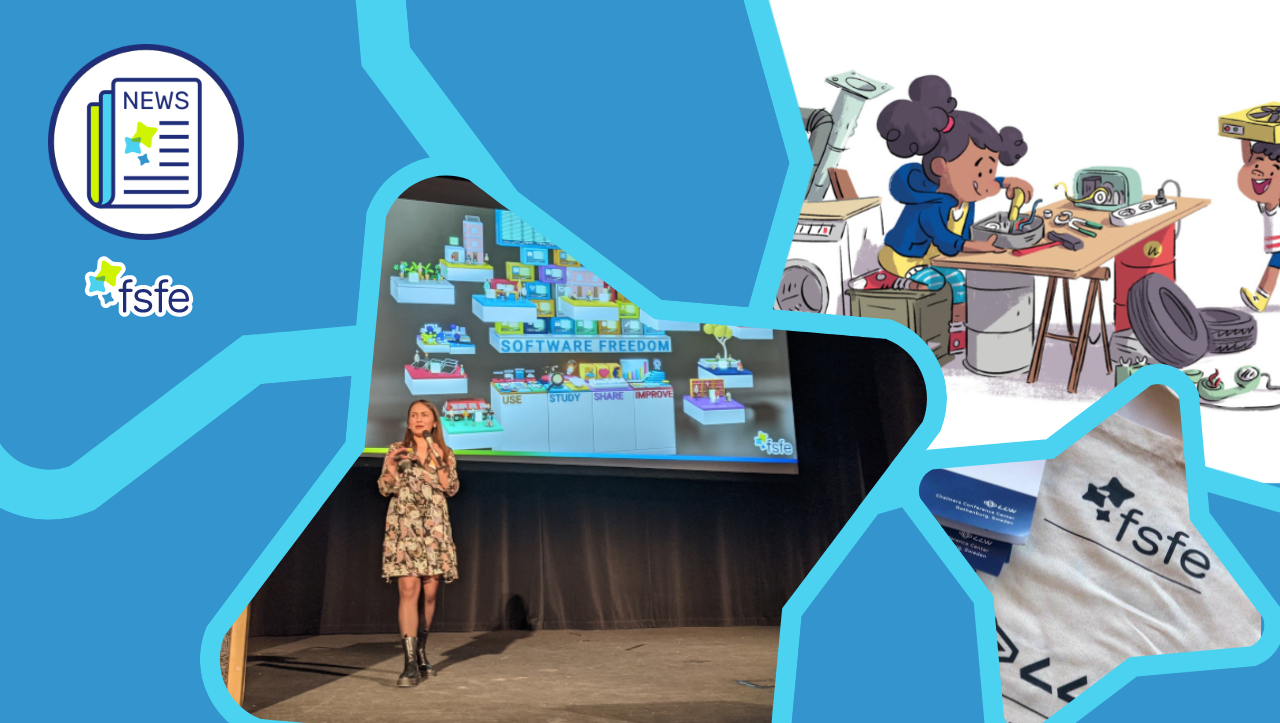
FOSS-North and LLW in Gothenburg
The Swedish city of Gothenburg hosted the 2023 edition of the Free
Software Legal & Licensing Workshop (LLW), the annual conference for
the Legal Network community. A few days later, FOSS-North took place,
the conference in Gothenburg that brings together the Nordic Free
Software communities. The FSFE organised a track on political and legal
aspects of Free Software and also participated in the community day
that preceded the conference.
During FOSS-North, over 180 participants took the opportunity to
learn about and discuss Free Software in more than 20 sessions. FSFE's
Policy Project Manager Lina Ceballos gave a keynote speech about the
Interoperable Europe Act and its possible impact on the Free Software
community.
📺 The recordings of the sessions will be available on
the FSFE Peertube channel soon, so stay tuned!

The FSFE is
helping to build an “Internet of Humans”
The Free Software Foundation Europe is a partner of the Next Generation Internet Zero
consortium, which aims to build a more resilient, trustworthy, and open
Internet that empowers end users to control technology. The FSFE team
provides support to NGI0 grantee projects on legal and licensing
issues. In addition, the FSFE helps them become REUSE compliant.
📰 Find more about our work in this project
Lithuania:
Students stop university from using only proprietary
authentication
Vilnius Tech officials attempted to enforce the use of
proprietary two factor identification (2FA) methods. Some students were
concerned the methods would compromise privacy and could not be run in
their devices, so they proposed an alternative authentication method.
Eventually, the university reversed its decision.
📰 Read the full story
SFP#20:
All about Device Neutrality with Lucas Lasota
Although digital devices are all around us, the number of devices
that cannot run Free Software is growing, with smartphones, PCs, and
routers being particularly problematic. In this episode, Lucas Lasota
joins Bonnie Mehring to discuss Device Neutrality and Router Freedom.
Lucas explains how software freedom, the absence of vendor lock-in, and
end-user control over data are crucial to breaking monopolies in
digital markets, promoting an open Internet, and ensuring access to
Free Software in devices.
📻 Listen to the podcast!

Two
reading proposals: REUSE specs for the scientific community & Free
Software to control technology
Last year, the FSFE presented the REUSE initiative at the Weizenbaum
Conference 2022 “Practicing Sovereignty – Interventions for Open
Digital Futures”. The presentation resulted in an academic
article (EN, page 66-71) explaining how REUSE specifications
facilitate and improve management policies for the digital commons by
improving data and metadata communication for individuals, communities,
governments, and businesses.
Check out also our article on Free Software to control
technology in the Publication "Access OpenTech" for the CrossCulture
Programme (CCP) by ifa (EN, pages 11-12[18-21])
Listen or watch - Ada
& Zangemann book
You can now get your copy of Ada &
Zangemann in English or German. While you can simply order the German
edition online
or at your favourite book store, the English version is currently
available in the US from the publisher and at the FSF online store and can
be pre-ordered in the rest of the world. One more reason to pre-order
it? It helps to support a book under a Creative Commons Share-alike
license.
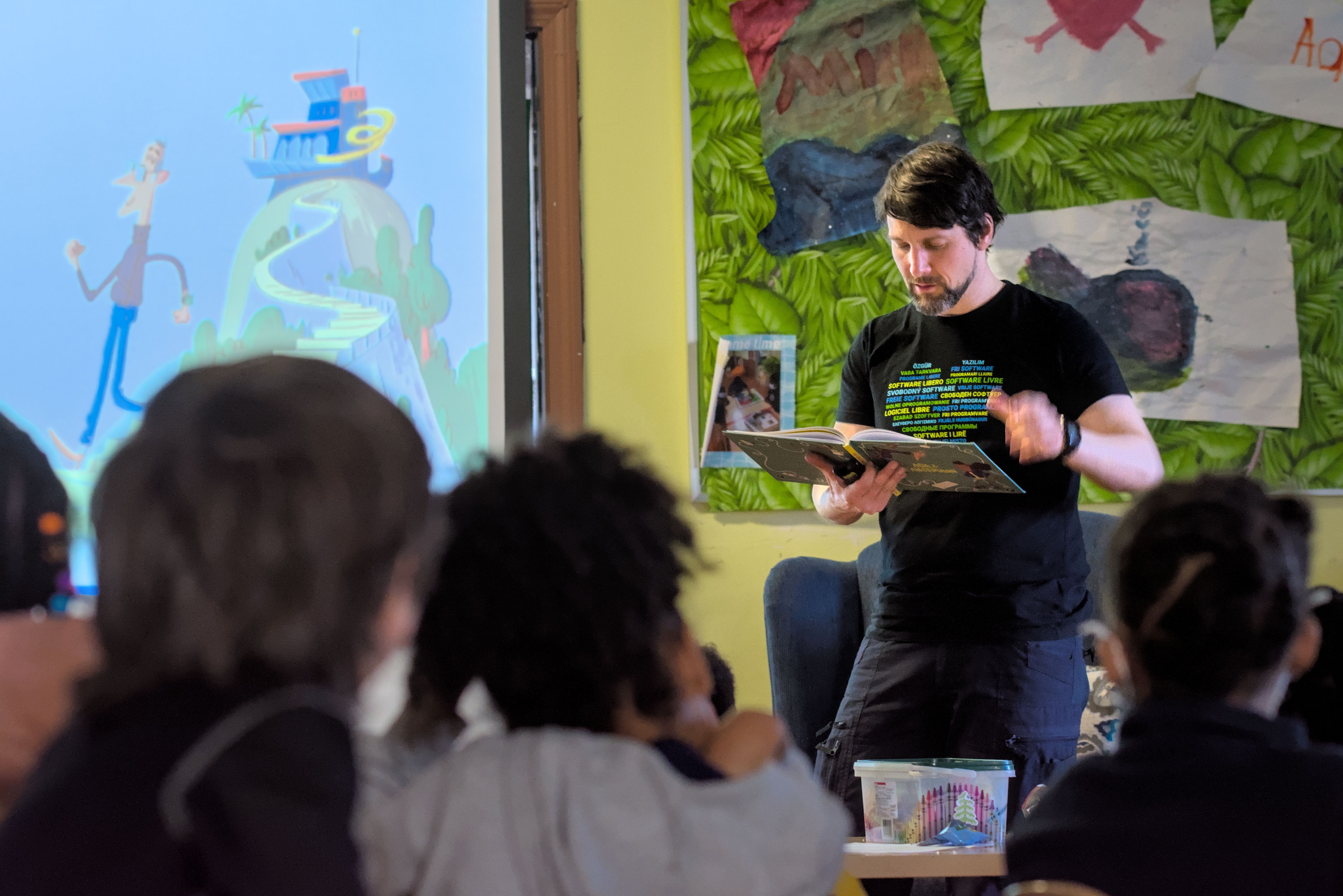
If you would also like to listen to it, we are giving
you two options: the reading of the book at the last episode
of the Linux Inlaws podcast and the video of the reading
at LibrePlanet, the annual conference of the FSF, our sister
organisation.
And do not forget the rest of the videos of LibrePlanet 2023, that took place in Boston last March.
'Youth Hacking 4 Freedom'
projects
While we wait for the projects developed by the participants of the
second edition of the Youth Hacking 4 Freedom contest, let's go back to
last year's edition to learn about two of the projects submitted: StarVibeLab
and OnionSproutsBot.
📰 Learn more
about the projects
Don’t forget to check our Events page
Our team and our community participate in many Free Software
events. Check our events page to be
up to date about what is going on. Subscribe to our feeds to stay
current about events and do not forget to sign up for our local group
and country mailings to receive updates about what is going on in your
region.
Get
Involved! Contact your administrations
Code paid for by the people should be available to the people! Publicly financed software developed
for the public sector should be available under a Free- and Open Source
Software license. Therefore, we created the activity Contact
your administrations under the initiative Public Money, Public
Code. On this wiki page, you will find all the necessary
information and arguments that you need when getting in touch with your
public administrations. Do not forget to leave a comment about it in
your favourite social network… and tag us!
Quote of the Month
"I'm a Free Software supporter for a long time, I fought against software patents in
Brussels, co-organised the system theme at the Libre Software Meeting
(RMLL) and run a Free Software company. Free Software is an essential
part of our global freedom, so it was natural to become a supporter of
the FSFE."
Benoit Mortier
Contribute to our Newsletter
We would love to hear from you. If you have any thoughts, pictures,
or news to share, please send them to us at newsletter@fsfe.org. You
can also support
us, contribute to our
work, and join our community. We
would like to thank our community and all the volunteers, supporters,
and donors who make our work possible, with a special mention to our
translators who make it possible for you to read this newsletter in
your mother tongue.
Your editor, Ana Galán
Support FSFE

